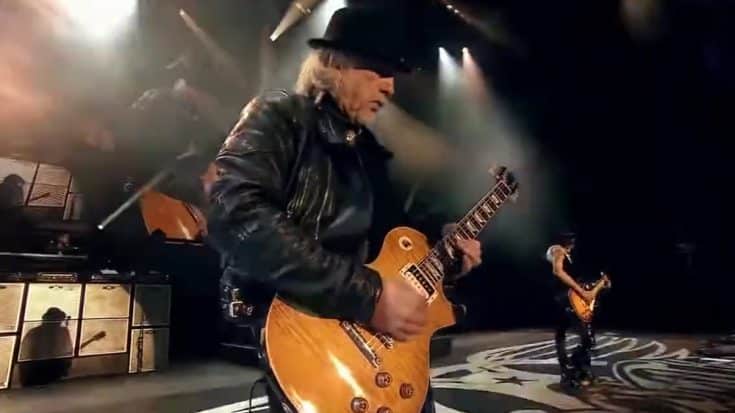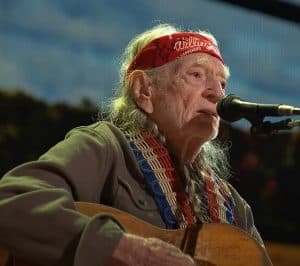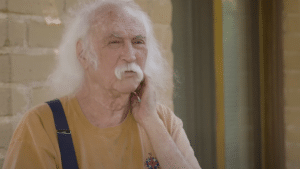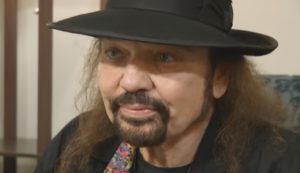Brad Whitford Reveals He and Joe Perry Were Treated Unjustly

Youtube @jonnypitt123
Aerosmith probably has one of the greatest stories of rise and fall. The legendary rock and roll band took a while to get their wings and soar high, and soar they did.
They also stumbled a few times and came back roaring, achieving feats that other classic rock bands tried and failed to do. Yet, as every epic tale unfolds, there are often hidden stories and moments of sheer brilliance that remain shrouded in the shadows.
One such moment in Aerosmith’s history occurred when the band’s producer, Jack Douglas, made a daring decision to hire sessionists as ‘ghost guitarists’ to replace their own Joe Perry and Brad Whitford, a move that must have stung the ego of the duo.
In a recent interview with Guitar World, Whitford discussed how the incident made him “a little bit angry” and “bummed out”, but still praised the professionalism of session pros Steve Hunter and Dick Wagner who were hired to do some lead work on the band’s second album, 1974’s Get Your Wings.
“That solo is blistering”
Whitford explains in the interview how these session players, who were known best for their work with Alice Cooper, were enlisted by Douglas to infuse a touch of fretboard brilliance into select tracks.
Notably, Hunter’s scorching solo on “Train Kept A-Rollin’” became legendary. Whitford recalls, “It was Jack who had the difficult task of breaking the news to Joe and me, and of course, that went down like a lead balloon.”
The guitarist, who felt gloomy because he couldn’t deliver what was required at the time, remembered, “At first you fight, and you’re a little bit angry, and then you get sad to where you’re like really bummed out that you can’t do it. And the thing was that we’d done some good stuff and could play good stuff, but the tracks required some real finesse, you know?”
He then brought up Hunter’s work on “Train Kept A-Rollin’”, which he thought had genius “rock leads”. “That was some great stuff and probably some of the stuff that they were most proud of out of anything they’d done. That solo is blistering,” Whitford added.
Hunter’s work on Get Your Wings made him a better player
Whitford also points out that Hunter’s remarkable guitar work extended to tracks like “S.O.S. (Too Bad)”, which he played “f*cking incredibly beautifully”, and Dick Wagner laid down some guitar magic on “Same Old Song and Dance”.
Surprisingly, Whitford contradicts popular myths (and Wikipedia) by confirming, “I don’t think I made it onto “Lord of the Thighs”, either.”
Despite his initial resistance, Whitford acknowledges that Hunter’s involvement ultimately made him a better player. He recalls being in the studio during the recording of the iconic “Train” solo, still viewing it as a guitar lesson to this day.
The session player’s influence continues to shape Whitford’s style, much like Joe Perry’s playing, with their distinct contributions harmoniously enriching the band’s sound.
A legendary cover of a legendary song
Aerosmith’s “Train Kept A-Rollin’” is an homage to a Big Band tune made famous by The Yardbirds during the mid-1960s, a period when Jimmy Page held the primary guitar role for the band.
Back in 1966, when Aerosmith was still called Chain Reaction, the fledgling rockers were fans of The Yardbirds and even scored a coveted opening slot at a Connecticut concert featuring the British rock legends. It was during this performance that the iconic band showcased “Train Kept A-Rollin’”, leaving a lasting impression on Steven Tyler.
In a remarkable display of musical prowess, Steve Hunter effortlessly delivered the solos featured in the early part of Aerosmith’s recording, accomplishing the feat in a single take. In the latter portion of the recording, Dick Wagner took the reins for the solo performance.
Douglas added a unique twist to the final mix by amplifying it within a stairwell at the Record Plant studio building. This innovative approach was aimed at infusing the track with a vibrant, live sound that would captivate the audience.













